Bevacirel 400mg Bevacizumab Injection
$2,100.00 – $10,000.00Price range: $2,100.00 through $10,000.00
Bevacirel 400 is used to treat various types of cancer, including colorectal, lung, kidney, ovarian, and cervical cancers. It contains Bevacizumab, which works by blocking the formation of new blood vessels that tumors need to grow and spread.
| Pack Size | Price | Price / Unit | Quantity | |
|---|---|---|---|---|
| 1 Injection | $2,100.00 | $2,100.00/ unit | ||
| 3 Injections | $6,150.00 | $2,050.00/ unit | ||
| 5 Injections | $10,000.00 | $2,000.00/ unit |
Looking for bulk / B2B pricing? | Send Inquiry |

| SKU | 11153 |
| Manufacturer | Reliance Formulation Pvt Ltd. |
| Categories | Anti Cancer |
| Delivery Time | 10 - 14 Working Days |
| Strength | 400mg |
Introduction to Bevacirel 400 mg Injection
Bevacirel 400mg Injection is an Anticancer medication. It is used in the treatment of cancer of colon and rectum, non-small cell lung cancer, kidney cancer, brain tumor, ovarian and cervical cancer. It helps to prevent the growth of new blood vessels that feed tumors and stops tumors from growing. This medicine is manufactured by Reliance Formulation Pvt Ltd.
Bevacirel 400mg Injection is an effective medicine, first-line option when used together with other cancer medicines. It is given as an infusion. That means you get it through a small needle in your vein or through a port, which is a device placed under your skin. The doctor will decide your dose and duration and will check you for signs of an infusion reaction such as high blood pressure and trouble breathing.
You keep taking Bevacirel 400mg Injection as long as your disease is controlled and your side effects are manageable. Your doctor will determine whether you should stop taking it or not. You may be advised to check blood pressure and levels of protein in urine while you are taking this medication.
Uses of Bevacirel 400 mg
- Cancer of colon and rectum
- Non-small cell lung cancer
- Kidney cancer
- Brain tumor
- Ovarian Cancer
- Cervical cancer
- Glioblastoma Multiforme
- Fallopian Tube Cancer
- Peritoneal Cancer
How Does Bevacirel 400 Works?
Bevacirel 400mg Injection contains bevacizumab, a monoclonal antibody that targets vascular endothelial growth factor A (VEGF-A). VEGF-A is a protein that promotes the formation of new blood vessels (angiogenesis), which tumors utilize to secure a blood supply for their growth and survival.
By binding to VEGF-A, bevacizumab prevents it from interacting with its receptors on endothelial cells, thereby inhibiting the development of new blood vessels within tumors . This inhibition of angiogenesis effectively starves the tumor of the nutrients and oxygen it requires, slowing its growth and potentially reducing its size.
Side Effects of Bevacirel 400 mg
- High blood pressure
- Headache
- Nosebleeds
- Taste changes
- Dry skin
- Fatigue
- Back pain
- Loss of appetite
- Constipation
- Runny nose
Dosage of Bevacirel 400mg
Bevacirel 400mg Injection is administered intravenously under the supervision of a qualified healthcare professional. The dosage and duration of treatment are determined by your doctor based on factors such as your age, body weight, and the specific type and severity of your cancer.
It is crucial to follow your doctor’s instructions precisely and not to self-administer this medication. Regular monitoring during treatment is essential to assess your response to the therapy and to manage any potential side effects.
How to Manage Side Effects?
- Check your blood pressure at home and during clinic visits.
- Reduce salt intake, manage stress, and engage in light exercise.
- Ensure adequate sleep and take short naps if necessary.
- Use over-the-counter painkillers as recommended.
- Apply fragrance-free lotions regularly.
- Relax in a quiet, dark room.
- Watch for signs like fever, sore throat, or cough.
Warnings & Precautions
Here’s a clear list of Warnings and Precautions for Bevacirel Injection (which contains Bevacizumab, a monoclonal antibody mainly used in cancer treatment):
1. Hemorrhage (Severe Bleeding):
- Risk of serious bleeding events (e.g., nosebleeds, gastrointestinal bleeding, lung bleeding). Discontinue if severe bleeding occurs.
2. Gastrointestinal (GI) Perforations:
- Risk of holes forming in the stomach or intestines, which can be life-threatening. Monitor for signs like severe abdominal pain.
3. Wound Healing Complications:
- Can delay healing or cause wound rupture. Stop Bevacirel before surgery (typically at least 28 days prior) and restart only after full wound healing.
4. Proteinuria (Protein in Urine):
- Risk of kidney problems due to protein leakage. Monitor urine protein levels; severe cases may require stopping treatment.
5. Venous and Arterial Thromboembolic Events:
- Increased risk of blood clots, heart attacks, or strokes. Use caution especially in patients with a history of clotting disorders.
6. Ovarian Failure (in Women):
- Can cause infertility or hormonal changes; discuss fertility preservation if necessary.
7. Severe Infections:
- Risk of serious infections including sepsis or wound infections.
8. Pulmonary Hemorrhage (especially in lung cancer patients):
- Life-threatening coughing up of blood; treatment should be stopped immediately if this occurs.
9. Reversible Posterior Leukoencephalopathy Syndrome (RPLS):
- A rare brain condition causing headaches, seizures, confusion, or vision problems.
10. Hypersensitivity Reactions:
- Allergic reactions, including anaphylaxis (life-threatening allergy).
Storage
- Store in a refrigerator at 2°C to 8°C (36°F to 46°F).
- Keep the vial in its original outer carton to protect it from light.
- Do not shake the vial.
- If Bevacirel is diluted for infusion, use it immediately.
- If not used immediately, the diluted solution can be stored in a refrigerator (2°C to 8°C) for up to 24 hours, but it’s best to follow hospital or pharmacist instructions.
Frequently Asked Questions
1. What kinds of cancer can Bevacirel Injection be used for ?
Bevacirel Injection is approved for the treatment of cancer of the colon or rectum that has spread to other parts of the body. It must be given along with chemotherapy. Other types of cancers that it helps with includes certain types of lung cancer, kidney cancer, ovarian cancer, cervical cancer, and glioblastoma (a type of brain tumor).
2. How is Bevacirel Injection given?
Bevacirel Injection is given as an infusion. That means you get it through a small needle in your vein or through a port, which is a device placed under your skin. Your doctor will decide your dose and duration and will monitor you for signs of an infusion reaction.
3. How long can I take Bevacirel Injection for?
You keep taking Bevacirel Injection as long as your disease is controlled and your side effects are manageable. Your doctor will determine whether you should stop taking Bevacirel Injection. If your cancer progresses during this initial treatment, talk to your doctor if a different chemotherapy may be an option.
4. How Bevacirel Injection works differently from chemotherapy?
Chemotherapy attacks fast-growing cells, like cancer cells. In contrast, the purpose of Bevacirel Injection is to prevent the growth of new blood vessels that feed tumors. This causes the Tumour to shrink, or to stop growing.
| Pack Size | 1 Injection, 5 Injections |
|---|---|
| Price/Unit | $2000/unit, $2050/unit, $2100/unit |
Be the first to review “Bevacirel 400mg Bevacizumab Injection” Cancel reply
Related Products
Anti Cancer
Anti Cancer
Anti Cancer
Anti Cancer


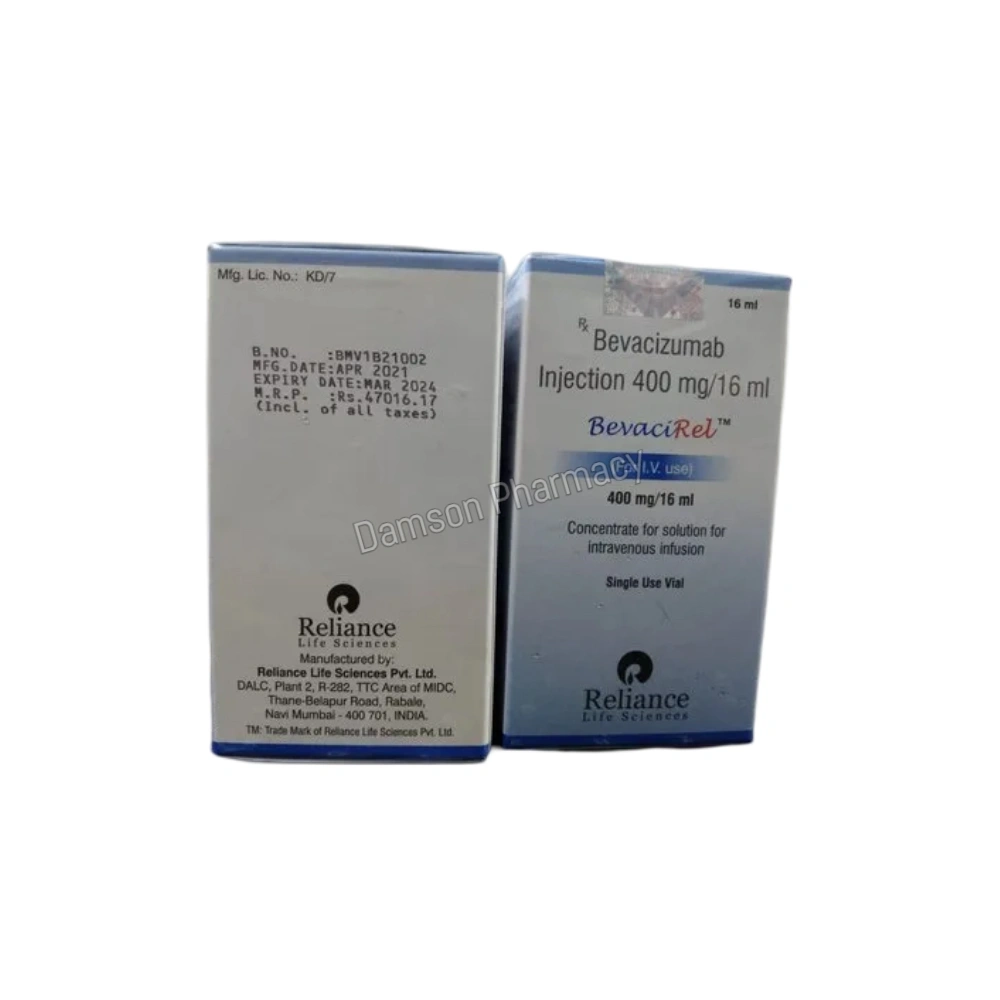
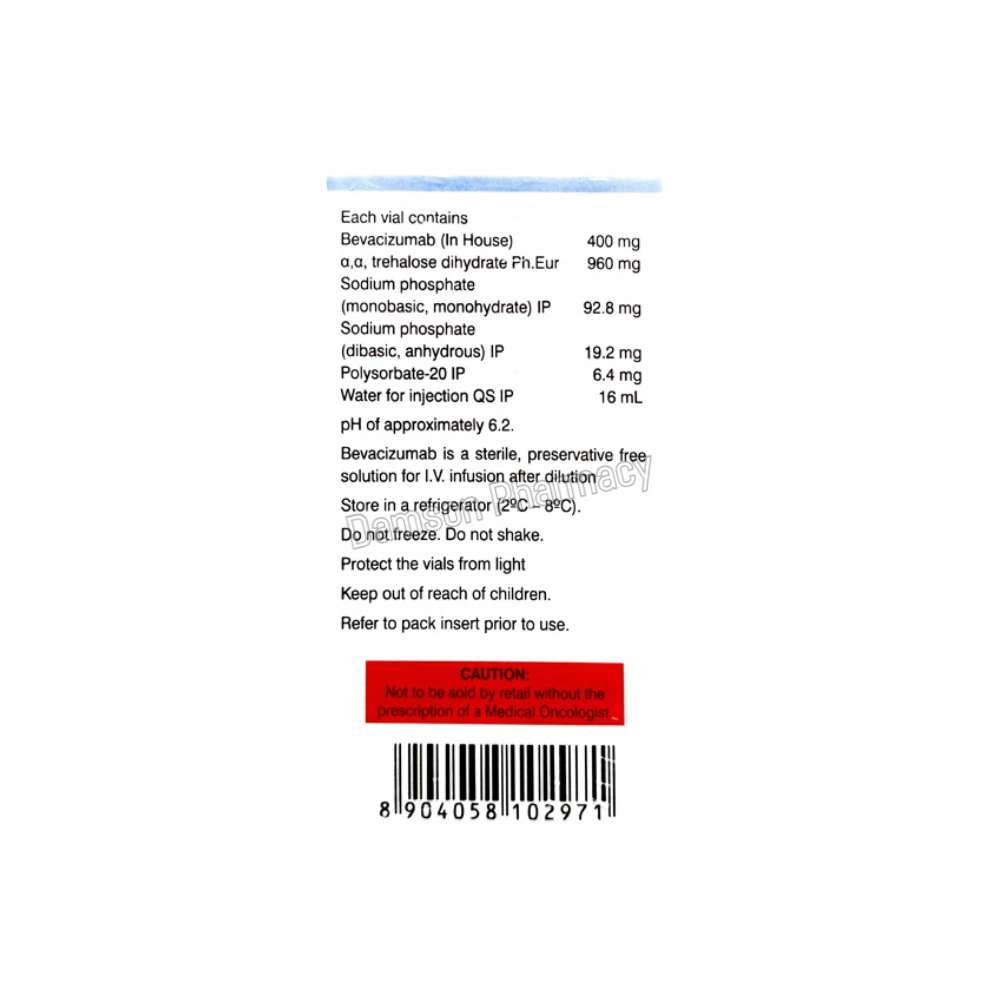
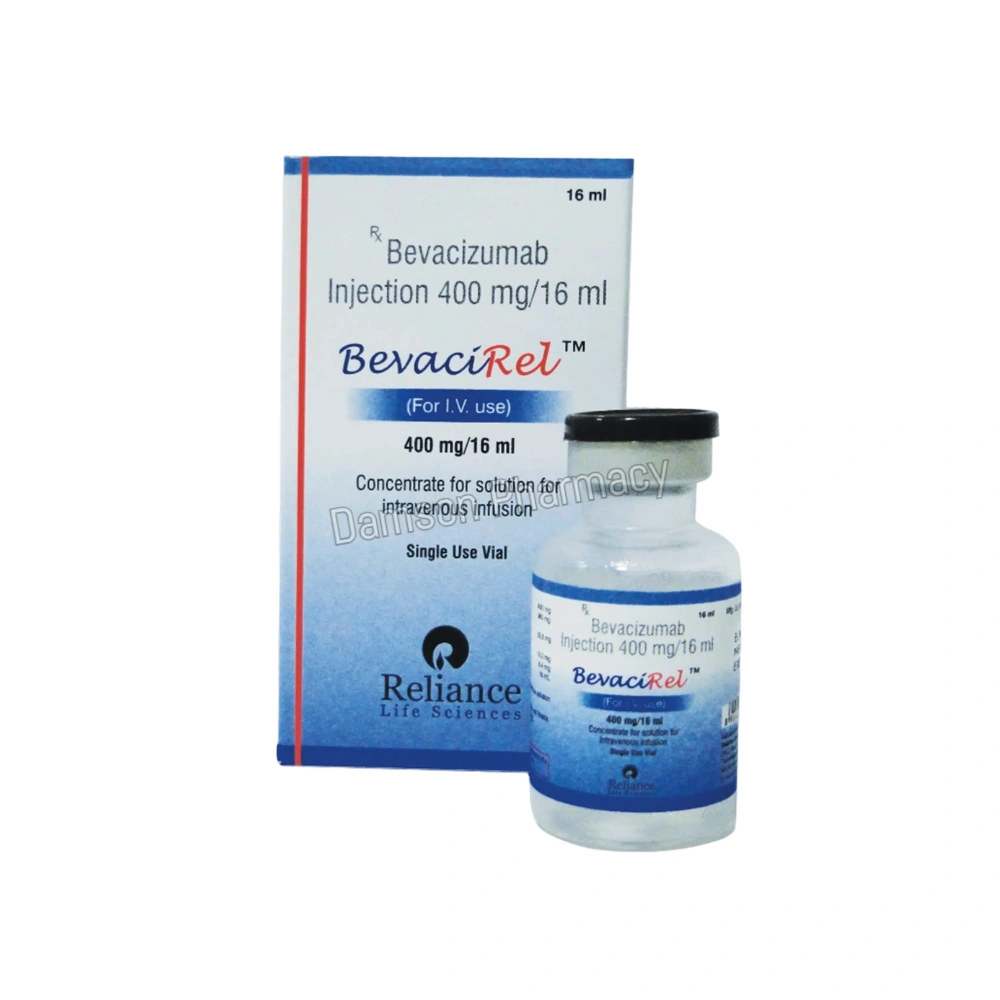
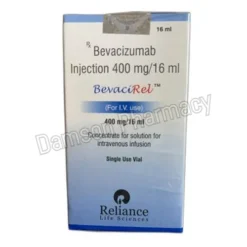
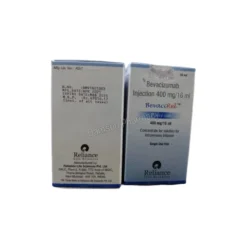
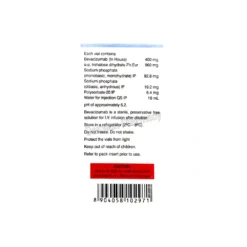
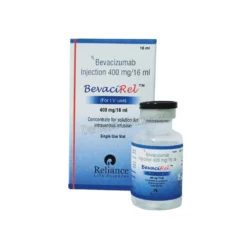
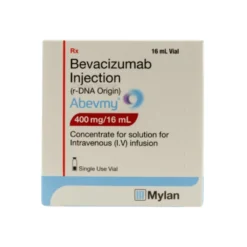
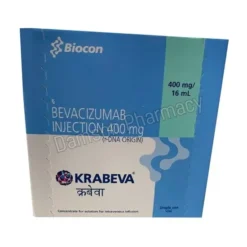
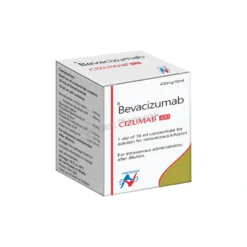

Reviews
There are no reviews yet.